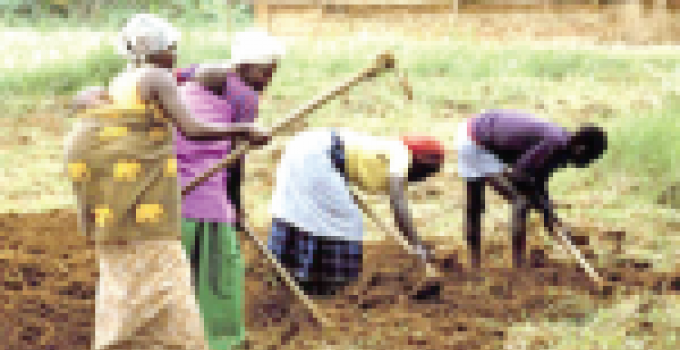This week, an important conference is taking place in Kigali, the capital of Rwanda, whose outcomes have the potential of turning the fortunes of agriculture in Africa round. The Forum for Agriculture Research in Africa (FARA) is organising its 7th Africa Agriculture Science Week (AASW) and General Assembly (GA), on the theme “Apply science, impact livelihoods”.
The AASW and GA annual conference will serve as a strategic platform to promote continental and global networking to emphasise the capacities of Africa’s agricultural science community, from research, education and civil societies engaged in agriculture. The conference will be attended by policy makers, agricultural experts and FARA‘s partners from across the world. The main purpose for this gathering of great minds in agriculture is to deliberate on the changing trends in the industry and how Africa can use science, technology and innovations in enhancing agricultural practices to make them more impactful.
Sub-themes slated for this year’s meeting are; policies for making science work for African agriculture, sustainable productivity growth, institutions and policies financing human capital development, agribusiness and value chains. Discussions on these areas are intended to motivate investment in Africa-oriented research with findings that are Africa focused.
According to the Executive Director of FARA, Mr Yemi Akinbamijo, although a lot of agricultural research has been conducted in Africa with successful outcomes, it is evident that there is still room to translate these into the required economic gains. While this is true, it is also very important that research is conducted within an African setting to provide African-oriented findings for the development of the agricultural sector in Africa.
Currently, agribusiness and the recognition of value chains are changing the way agriculture is practised in Africa, with many small-scale farmers striving to expand their operations and venturing into the processing of raw materials to add value to their produce. The 7th AASW conference intends to use this platform to further educate individuals and disseminate knowledge on how the science behind agribusiness can be utilised effectively to impact lives.
Agribusiness, more than any other economic sector in Africa, has the potential to reduce poverty and drive economic growth. Sub-Saharan Africa’s major source of food supply, income and livelihood for over 60 per cent of the rural population, is derived from the agricultural sector and is an important contributor to foreign exchange earnings. For over 64 per cent of the continent’s population, agriculture remains the primary source of subsistence, employment and income.
Even in African countries whose economies are dominated by mining and manufacturing, agriculture is still a significant contributor to their National GDP. According to reports from the UNDP, agriculture, on the average, contributes 34 per cent to national GDP and accounts for about 33 per cent of the reported economic growth in African countries (UNDP 2012).
Sustainable agribusiness requires research, planning and a whole lot of preparation because we are dealing with natural components we have little control over. Therefore, as FARA leads the way through this year’s AASW and GA, agricultural researchers from all over the continent are encouraged to invest in research with an African focus in order to derive results that can drive agriculture for development and impact lives.
The 6th edition of the AASW and GA was held in Accra. It focused on the theme, Africa Feeding Africa through Agricultural Science and Innovation, and saw participation from 1,334 people ranging from ministers of state, parliamentarians, scientific researchers, farmers, civil societies and development partners. The conference also drew on sub-themes of education, human resource development and innovations to improve productivity and resilience of some agricultural practices. Lessons drawn from the conference have been implemented by many African countries as indicated by the growing conversation surrounding agribusiness and the possible benefits Africa, as a continent, stands to gain.

